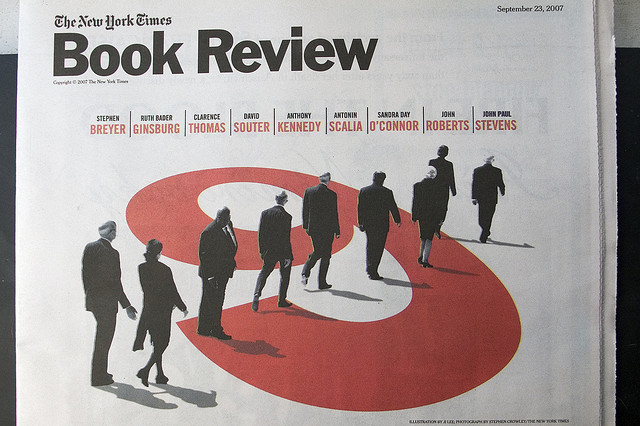I’ve been thinking a lot about mean-spiritedness and Internet culture lately. I can’t tell if we humans have always been this horrible to one another or if this is new phenomenon. I suspect that the former is true: people have always been internally toxic; it’s just so easy (and consequence-free) to express now. Still, there are days when I find myself despairing.
An article I read in the Guardian this morning has done nothing to change that.
In “Am I being catfished?” author Kathleen Hale describes her experience with a trollish book blogger who went by the name of Blythe Harris (not her real name). “Harris’s” charming and sophisticated review of an advanced reading copy of Hale’s novel included the words “Fuck you.”
Here’s an excerpt from Hale’s piece:
Writing for a living means working in an industry where one’s success or failure hinges on the subjective reactions of an audience. But, as Patricia implied, caring too much looks narcissistic. A standup comic can deal with a heckler in a crowded theatre, but online etiquette prohibits writers from responding to negativity in any way.
[. . .] Blythe’s vitriol continued to create a ripple effect: every time someone admitted to having liked my book on Goodreads, they included a caveat that referenced her review. The ones who truly loathed it tweeted reviews at me.
[. . .] Blythe began tweeting in tandem with me, ridiculing everything I said. Confronting her would mean publicly acknowledging that I searched my name on Twitter, which is about as socially attractive as setting up a Google alert for your name (which I also did). So instead I ate a lot of candy and engaged in light stalking: I prowled Blythe’s Instagram and Twitter, I read her reviews, considered photos of her baked goods and watched from a distance as she got on her soapbox – at one point bragging she was the only person she knew who used her real name and profession online. As my fascination mounted, and my self-loathing deepened, I reminded myself that there are worse things than rabid bloggers (cancer, for instance) and that people suffer greater degradations than becoming writers. But still, I wanted to respond.
[A friend] warned me that this was exactly what Blythe was waiting for – and [another] agreed: “[GR Bullies] actually bait authors online to get them to say something, anything, that can be taken out of context.” The next step, she said, was for them to begin the “career-destroying” phase.
“Is this even real?” I Gchatted Patricia.
“YES THERE IS A CAREER-DESTROYING PHASE IT’S AWFUL. DO. NOT. ENGAGE.”
Hale’s account is, to say the least, sobering. Even more sobering (and utterly gripping) is her description of the moment when she actually shows up on the doorstep of the offending book blogger.
The article raises all sorts of questions for me. One is a general question of reading culture and how we engage with an author’s work. Another is about the payoff of trolling. A third is about the consequences of this dynamic for creative people.
I belong to a closed Facebook group for women writers. It is closed for reasons that are perhaps understandable. There, Kathleen Hale shared the fact that she woke up to piles of hate mail as a result of the article.
I’ll leave it there for now.
Do read the piece and share your thoughts.
[Image: Kevin Dooley]




